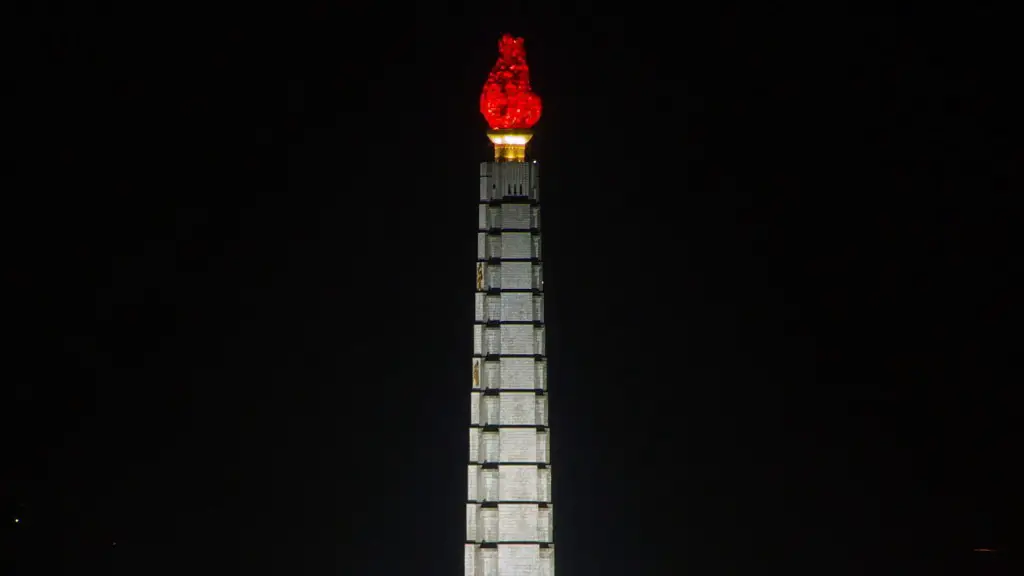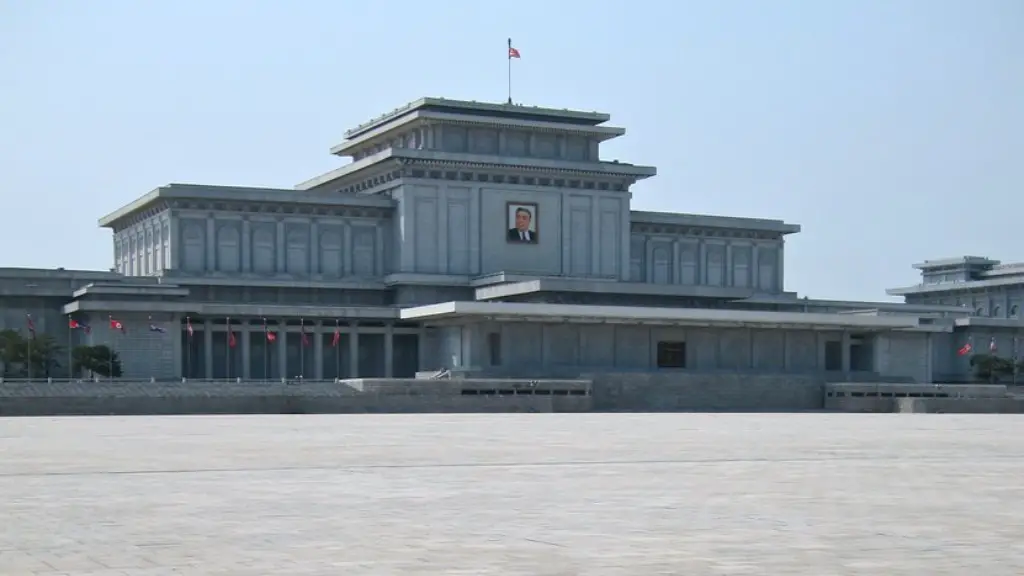Background Information
North Korea is a totalitarian state sometimes referred to as the “hermit kingdom” because the state does not strongly engage with the international community and strictly controls its internal affairs. North Korea is a nuclear state, possessing a stockpile of weapons, and is known for its strict human rights policies and its isolationism, as well as its widespread poverty and underdevelopment. North Korea has been a nuclear power since the 1990s and has conducted a series of nuclear tests. More recently, the country has been engaged in a series of provocations, including threats of war, that have escalated tensions in the international community.
Relevant Data
In January of 2017, North Korea tested a ballistic missile technology that could be used to deliver a nuclear weapon. This test was a response to a set of sanctions imposed on North Korea by the United Nations Security Council, who have accused North Korea of engaging in nuclear proliferation and a breach of international law. While the sanctions are intended to curb the country’s nuclear ambitions, little progress has been made in dissuading North Korean leader Kim Jong-Un from continuing to act provocatively.
Additionally, economic sanctions have had a detrimental effect on the North Korean economy, particularly with regards to food security. A recent report from the United Nations estimates that 10.5 million people in North Korea are seriously food insecure, meaning they do not have enough food to meet their basic needs. The World Food Program (WFP) predicts that this figure will reach 16 million by the end of 2018.
Expert Perspectives
Experts are divided on the best approach to curbing the nuclear ambitions of North Korea. While some advocate stronger sanctions, others believe that dialogue and diplomacy are the only way to achieve long-term peace and stability.
In a speech delivered to the UN in June of 2017, U.S. President Donald Trump stated that the United States would “absolutely” consider military action against North Korea if the country continues to threaten the United States and its allies. This statement was met with strong condemnation from the international community, who believe that military action is not an appropriate response.
David Shear, a former U.S. ambassador to South Korea, believes that diplomatic solutions are the only way forward. “That’s the only way we’re going to solve this through dialogue and negotiation,” he said. “So far, unfortunately, there hasn’t been very much progress.”
Insights and Analysis
The situation in North Korea is complex, and it is clear that a peaceful resolution is the only acceptable outcome. It is also clear that action must be taken to curb North Korea’s nuclear ambitions and protect citizens who are suffering as a result of the ongoing conflict.
However, it is difficult to determine what action will be successful in achieving this end. While strong sanctions may “bite”, as Secretary of State Rex Tillerson has said, they may also harden the country’s stance and further antagonize the situation. At the same time, direct military action must be avoided at all costs.
Ultimately, the only way to achieve a lasting resolution to the crisis in North Korea is through dialogue and negotiations. This will be no easy task, as the North Korean regime is highly unpredictable and has proven resistant to diplomatic solutions in the past. However, the United States and its allies must remain steadfast and work to find a workable solution that is acceptable to all parties involved.
Engagement
The situation in North Korea is a complex one, and military action is not a viable solution. Engagement and dialogue is the only way to resolve the crisis and should be pursued by the international community to bring about a lasting resolution.
However, the North Korean leadership is extremely unpredictable and has proven resistant to diplomatic solutions in the past. For dialogue to succeed, the United States and its allies must remain firm in their commitment to peacefully negotiate an end to the conflict and must be prepared to give concessions in order to gain progress.
In order for peace and stability to return to the Korean Peninsula, all sides must come to the table in good faith and work to find a resolution that is acceptable to all parties involved. This will require a concerted diplomatic effort, as well as a willingness to take risks and make compromises in order to have a lasting impact.
International Pressure
The United Nations Security Council has placed stringent economic sanctions on North Korea in response to the country’s nuclear ambitions and continued provocations. However, there has been a lack of unified action amongst international partners who, despite their shared desire to end North Korea’s nuclear ambitions, have been unable to come to an agreement on how to proceed.
China, North Korea’s closest ally, is one of the key players in exerting pressure on the regime and is essential in the international effort to reign in North Korea’s nuclear threat. China has imposed its own sanctions on North Korea and has sought to convince the regime of the importance of returning to the bargaining table and working towards a peaceful resolution.
The international community can make progress if it unifies behind a common goal and puts forward a unified stance. This will require firm pressure from China as well as other international actors, and will require a unified stance in order to ensure that the North Korean regime is held accountable for its actions.
Diplomatic Solutions
Diplomatic solutions are the only way to bring about a lasting resolution to the situation in North Korea. In order for diplomacy to be successful, the United States and its allies must be willing to engage with North Korea and put forward a unified message of peace and cooperation.
This requires a willingness to make concessions in order to gain progress, as well as an understanding of the North Korean perspective and an open mind in order to find a common ground. In addition, the international community needs to put forward clear incentives for North Korea to return to the negotiating table and must be willing to make compromises in order to achieve a peaceful resolution to the crisis.
Humanitarian Aid
The situation in North Korea has had a devastating effect on the country’s citizens, with an estimated 10.5 million people in the country facing food insecurity. Despite the UN imposing sanctions on the regime, there is still an urgent need for humanitarian aid.
The World Food Program (WFP) has stated that its “number one priority” is providing emergency relief for families in need in North Korea. They have also called for an end to the international sanctions imposed on the country to ensure that food can reach those who need it most.
The international community must recognize the devastating effect the sanctions are having on the citizens of North Korea, and must continue to push for an end to the sanctions in order to allow humanitarian aid to be delivered to those in need. This is essential in order to protect and provide assistance to those who are most vulnerable.
Economic Development
The economic sanctions imposed on North Korea have had a severe impact on the country’s economy, leading to a widespread lack of access to basic goods and services. In order to develop the economy and bring stability to the region, North Korea must receive assistance from the international community to rebuild its infrastructure and promote economic growth.
The World Bank and the Asian Development Bank have expressed a willingness to provide technical assistance for economic development in North Korea, with a focus on providing access to basic services such as education, health, and energy. They have also called for the lifting of economic sanctions in order to promote economic growth and development.
Furthermore, the international community must commit to providing financial assistance to North Korea in order to promote economic stability and help to bring about a lasting resolution to the crisis.
Citizen Engagement
In order for the situation in North Korea to improve, citizens must become engaged in the process. This can be done through public diplomacy, which seeks to cultivate relationships between citizens of both North and South Korea through direct dialogue.
Citizen engagement is also important in raising awareness of human rights violations in North Korea and in promoting international cooperation. For example, the organization Liberty in North Korea (LiNK) has released videos detailing the stories of everyday people in North Korea who are struggling to survive. These videos have been shared widely online, creating an international movement to advocate for the rights of North Korean citizens.
Finally, citizens can support aid organizations in their effort to provide humanitarian assistance to those in need in North Korea. This can be done through donations to such organizations and by spreading the word about their work. By raising awareness and supporting such initiatives, citizens can play an active role in promoting peace and stability in the region.


